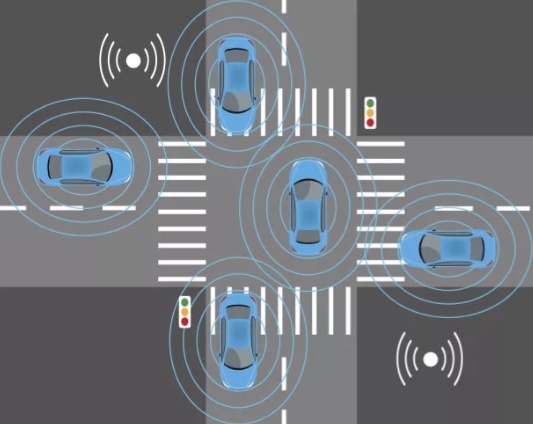IoT data in transit combined with machine learning and artificial intelligence can help make supply chains transparent and efficient.
The global logistics market is growing and technology is becoming a major trigger for development. Businesses are looking for IoT solutions for transportation to help them increase supply chain visibility, improve operations at all stages of logistics and save resources. This can be achieved by using IoT devices to collect data about logistics processes and convert it into valuable business information. Let's consider how the Internet of Things in transportation can create a constant flow of useful information, allowing companies to take full advantage of big data.
How the Internet of Things Turns Data into Value
Implementing IoT in transportation is more than just connecting devices or sensors to the network. IoT in transportation turns every object in the supply chain into a source of information. To use the collected information for business benefit, you must be able to analyze big data in logistics and supply chain management. Unstructured information has no value. You need to understand how to use data to grow your business. Módulo SOC
Data become meaningful if they go through the collect-communicate-aggregate-analyze-action chain. IoT sensors collect data and upload it to the cloud, where the information is converted into a usable format and structured. The "purified" information becomes the basis for training machine learning algorithms that analyze the data and automate certain processes. ML and AI discover patterns and make predictions. Logistics companies gain a comprehensive view of what is happening in the supply chain.
What data is useful for logistics
In 2020, the logistics big data analytics market is worth USD 3.55 billion. Experts suggest that it will grow to $9.28 billion by 2026, with an average annual growth rate of 17.31%. Organizations must be able to analyze the ever-increasing volume of incoming information and improve logistics operations.
IoT in transportation solves the main problem, which is transparency and visibility in the supply chain. Traditionally, managers have only been able to control the flow of goods at the point of shipment. It was impossible to determine what happened to the cargo between checkpoints.
Without transparency, it is difficult to understand the conditions under which goods were transported and whether the carrier fulfilled the terms of the contract. Also unable to determine:
the location of the goods at a specific time;
Whether the goods are damaged (whether the packaging is airtight, whether the container door is closed, etc.);
Compliance with transport conditions (temperature, humidity and other indicators);
What kind of weather or road accidents will prevent the timely delivery of goods;
Whether the carrier deviates from the route;
Whether the goods can arrive on time and so on.
If this information is missing, the delivery is blind. Managers don't know where the problems in the supply chain are and how to fix them.
Access to the right data provides room for improvement. Sensors create a continuous flow of IoT data and provide visibility into the supply chain.
How a Continuous Stream of IoT Data Works in Logistics
IoT sensors are attached to packages, boxes or containers that contain goods. The device collects information about the location of the package and its characteristics. They transmit information to cloud applications via GPS or mobile networks. Accessible supply chain members can use this program.
Goods can be controlled remotely at any time. For this, you don't need to wait until the goods arrive at their destination. The provider quickly fixes problems as they occur or prevents them. IoT in transportation reduces the risk of supply chain disruptions.
Big data in logistics and supply chain management can be used for:
optimize routes;
Track the status of the goods;
Evaluate the work of the carrier;
Manage home deliveries;
Improve warehouse operations;
Minimize damage to goods during transportation;
Forecasting commodity demand, etc.
The benefits of continuous IoT data flow in logistics
IoT in transportation is the “eyes and ears” of supply chain managers. This is a surefire way to gain a competitive advantage and strengthen your market position. The benefits of IoT for logistics are as follows:
(1) Workflow optimization
IoT creates a centralized network that helps in controlling the various stages of the supply chain so that it runs quickly and without failure. According to the data:
The supplier adjusts the shipping schedule so that the product reaches the customer on time;
The carrier does not deviate from the route and monitors the quality of the cargo;
Terminal operators consider unloading to avoid damage to cargo;
Customers see it when they receive the goods.
For a business, this means that the company does not lose money due to supply chain disruptions, maintains its reputation, and increases customer loyalty.
(2) Improved demand forecasting
IoT sensors enter every stage of the supply chain. IoT-based devices improve warehouse operations:
They help with stocktaking;
They monitor inventory storage conditions;
where they found the goods;
They solve warehouse backlogs, forecast product demand based on archival data, and more.
For the logistics industry, this means no delays in the first stages of the supply chain. Delays are often due to lack of goods in warehouses or delayed loading of trucks because products are difficult to find on site. If all goes well in the first phase, there will be no delays in subsequent phases. Módulo GPRS
(3) Eliminate the risk of transportation failure
Trucks, ships and trains may break down en route. This is a major risk to the supply chain as goods will not be delivered on time. You will need to provide additional help.
IoT sensors monitor vehicle status parameters and detect potential problems in advance. They tell you when it's best to do preventive maintenance so your car, train or boat doesn't break down along the way. They provide short-distance routes and safe driving instructions to ensure shipments arrive on time.
(4) New business opportunities
With the help of IoT, logistics companies are improving business models in the transportation ecosystem. The Internet of Things initiates a mechanism for continuous improvement of logistics processes. To implement the new approach, applications that unite supply chain participants into a single product ecosystem are needed.
IoT in transportation offers unprecedented supply chain agility. With the latest data, the app will be able to set up individual delivery routes for specific customers.
How to Implement IoT in Logistics
Implementing IoT in transportation takes time and strategic action:
identify problems in the supply chain;
Setting goals for IoT implementation;
Develop big data software in logistics and supply chain management;
Install sensors and link them to cloud-based monitoring applications;
Train employees to transition to new forms of work.
When planning a transition to IoT logistics, it’s worth starting with business requirements. When you define your digital goals, it becomes easier to create a technology implementation roadmap. When employees are ready for change, they get to focus faster and make fewer mistakes. Only after this can you create a true IoT ecosystem. The most important thing is to find a reliable technology partner. A team of IT experts can implement business requirements and create IoT solutions for transportation.
In conclusion
The Internet of Things in transportation is fundamental to the digitalization process of the industry. Data collected by IoT sensors is becoming a valuable source for logistics development. Together with ML and AI, this technology makes the supply chain transparent and efficient. By 2024, the global logistics market will double from 2015 to $15.5 trillion. This means that problems must be addressed before they become catastrophic.


No comments yet